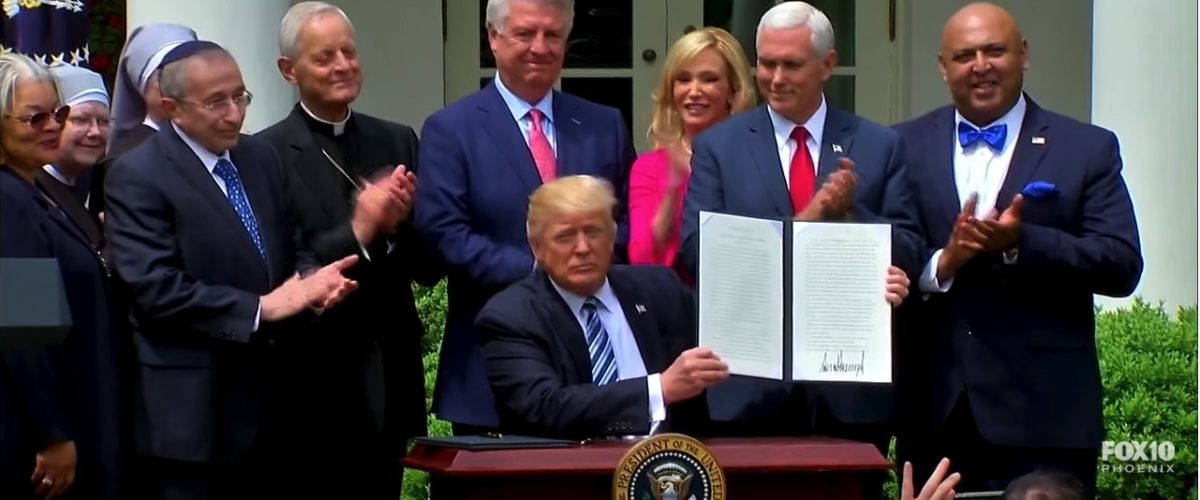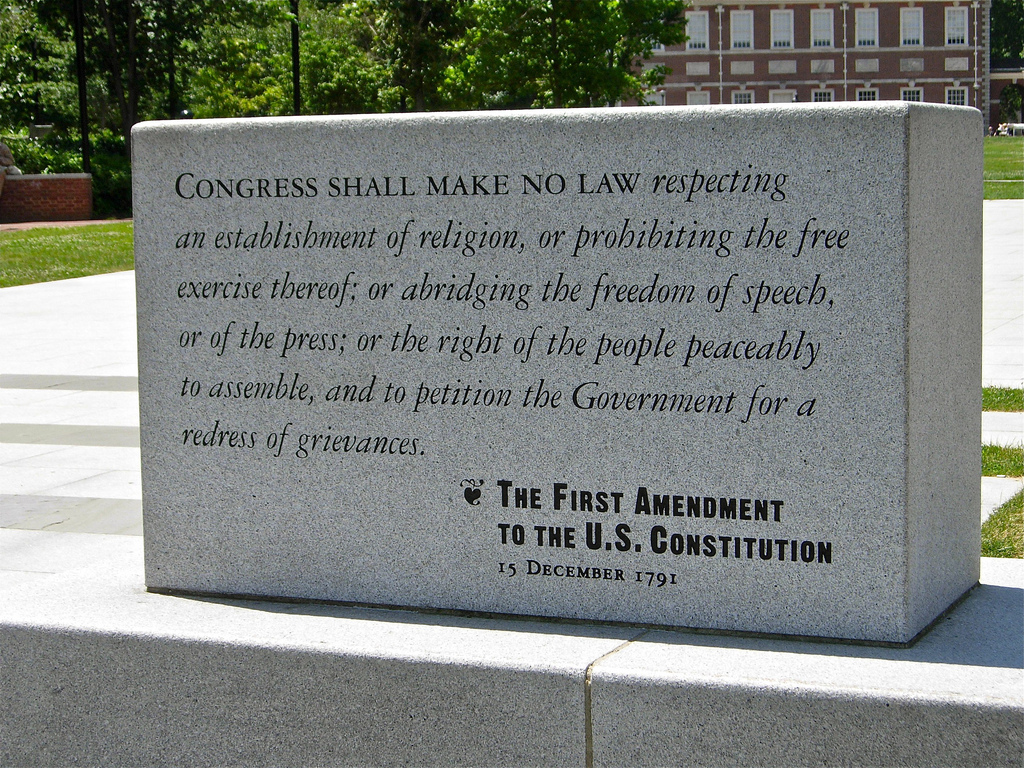In a presidential proclamation Jan. 16, President Donald Trump claimed America’s “cherished legacy of religious liberty” is undermined by threatening tax consequences for churches that endorse political candidates and by requiring persons or organizations to obey laws that violate their conscience.
Proclaiming Jan. 16 “Religious Freedom Day,” the president said the U.S. Constitution and laws guarantee Americans the right not only to believe as they see fit but also to freely exercise their religion.
“Unfortunately, not all have recognized the importance of religious freedom, whether by threatening tax consequences for particular forms of religious speech, or forcing people to comply with laws that violate their core religious beliefs without sufficient justification,” the president said. “These incursions, little by little, can destroy the fundamental freedom underlying our democracy.”
Trump said those reasons were behind his May executive order barring the Treasury Department from taking “adverse action” against religious organizations that speak out on moral and religious issues and dropping federal requirements for religious organizations to include birth control coverage in their employees’ health insurance.
Attorney General Jeff Sessions followed in October with guidance instructing the IRS not to enforce the Johnson Amendment, 1950s-era legislation prohibiting all 501(c)(3) nonprofit organizations from endorsing or opposing political candidates.
The attorney general also specified that freedom of religion “includes the right to act or abstain from action in accordance with one’s religious beliefs.”
“The Free Exercise Clause protects not just the right to believe or the right to worship,” the guidance document said. “It protects the right to perform or abstain from performing certain physical acts in accordance with one’s beliefs.”
In Tuesday’s proclamation, President Trump said: “No American — whether a nun, nurse, baker or business owner — should be forced to choose between the tenets of faith or adherence to the law.”
National Religious Freedom Day commemorates the Virginia General Assembly’s adoption of Thomas Jefferson’s landmark Virginia Statute for Religious Freedom on Jan. 16, 1786. The statute became the basis for the First Amendment to the Constitution, which includes the guarantee “Congress shall make no law respecting an establishment of religion, or prohibiting the free exercise thereof.”
The Virginia Statute for Religious Freedom disestablished the Church of England in Virginia. It guaranteed freedom to minority sects, including Baptists, and laid the groundwork for the modern understanding of the separation of church and state.
In today’s political climate, many Americans, including Christians, interpret the First Amendment’s religious liberty protections in different ways.
Some, like the Alliance Defending Freedom, say the Johnson Amendment muzzles free speech by limiting what preachers can or cannot say from the pulpit. Others, like the Baptist Joint Committee for Religious Liberty, say it keeps secular politics from dividing houses of worship and protects churches from being coopted by political campaigns.
Similarly, some argue that requiring Christian-run businesses to provide services to same-sex couples violates the religious freedom of owners who believe marriage should be limited to couples of the opposite sex. Others say that laws requiring public accommodation apply to everyone and oppose the use of religion as a license to discriminate.
Don Byrd, manager of the Baptist Joint Committee for Religious Liberty blogs, encouraged readers to observe Religious Liberty Day by reading the Virginia statute in its entirety.
“A common objection to those of us who advocate for a robust separation of church and state is that our Founders would not have insisted on a strict delineation,” Byrd said. “But the Virginia Statute, authored by Thomas Jefferson, shows a keen and passionate understanding that the separation of church and state is good for both.”
Read the Virginia statute here.



